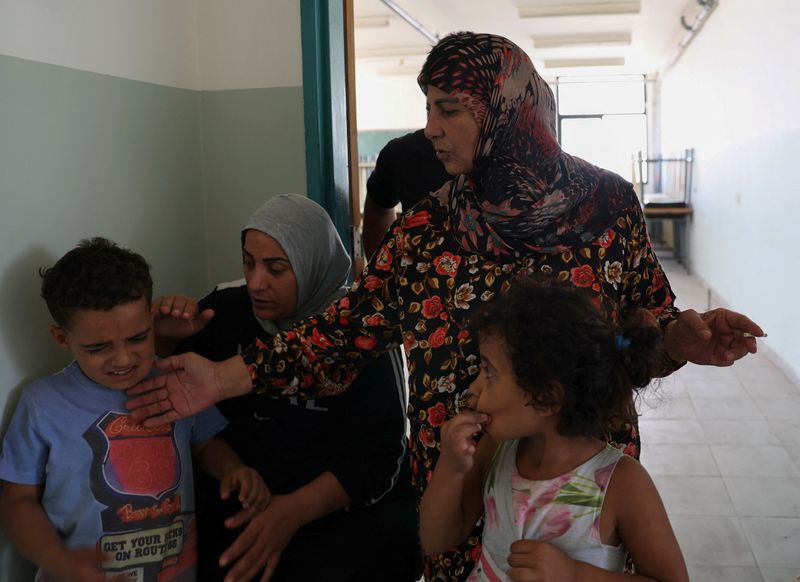By Emilie Madi
BEIRUT (Reuters) - After evacuating her family from the village of Seddiqine in southern Lebanon, Feryal Mehsen went back to fetch belongings. It was then that an Israeli airstrike hit close by.
Now in a shelter in Beirut, she sits scrolling through messages from friends and relatives checking if she survived the blast.
"Are you still alive? I heard that you’re dead," one man asked her in a voice recording.
Israel's bombardment of southern villages in Lebanon, striking what it says are sites linked to the Iran-backed group Hezbollah, has driven tens of thousands of people like Mehsen, 58, from their homes.
Seddiqine residents had grown used to sporadic bombardment of the area near their village over months of cross-border fire triggered by the war in Gaza that began a year ago, but were not prepared for Monday's sudden escalation.
"All the people rushed out but I don't panic easily so I helped my neighbours get out. Then I came inside again and helped my family to leave with me," Mehsen said.
She left with her daughter and grandchildren, taking them to the southern city of Tyre before returning to Seddiqine to collect their belongings. That was when the airstrike hit.
"The rocket landed in front of me. I was shocked. I couldn't hear or see after that. Dust was everywhere. So I drove off quickly," she said.
As Israeli strikes intensified across southern Lebanon, with Hezbollah firing at targets in northern Israel, the family joined the throng of displaced people seeking refuge in Lebanon's capital, Beirut.
They ended up in the same shelter that Mehsen had used during the last major conflict between Israel and Hezbollah in July 2006.
"Now the situation is much harder," she said.
'ATMOSPHERE OF WAR'
In the same shelter, 63-year-old Souad Mahde was registering her name after fleeing her own southern Lebanese village of Qsaibah.
"The day before yesterday strikes started getting closer and planes were in the sky. We were scared," she said.
As the strikes started to creep closer into the village from the fields outside, Qsaibah's residents fled.
"The first thing I thought of was to take some clothes so I could change if we got somewhere. Just the basics, and medicine of course. Nothing more than that. No one cares any more about things like the house because fear takes over," she said.
As people across southern Lebanon headed north, the roads filled with crawling traffic. A journey that would normally take two hours turned into a day-long journey.
"Our way out was very slow. The traffic was horrible. It was really hard. We moved for a bit and stopped for a bit. There were strikes here and there until we reached Beirut. It took us until evening," she said.

Reaching her destination did not bring her a sense of peace.
"Even in Beirut, there is an atmosphere of war. Of course, we are in a war," she said.